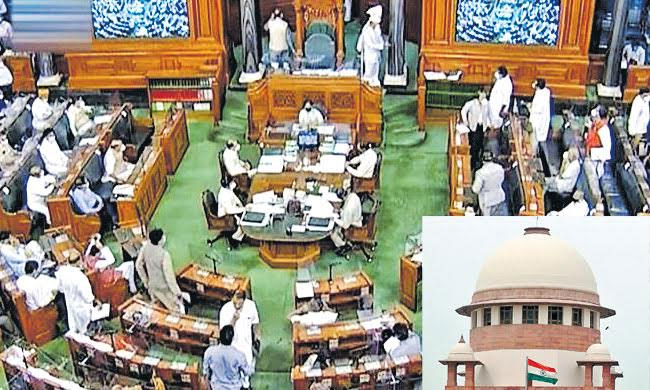 The Chief Justice of India (CJI) NV Ramana led bench of the Supreme Court had expressed its severe dissatisfaction over the delay in the charge sheet filing in the cases that involve the lawmakers.
The Chief Justice of India (CJI) NV Ramana led bench of the Supreme Court had expressed its severe dissatisfaction over the delay in the charge sheet filing in the cases that involve the lawmakers.
The other day the bench comprising of Y Chandrachud and Surya Kant as well has heard a petition that was filed for the early conclusion of the cases that are pending against the lawmakers.
The bench said, the cases pending against the lawmakers and former lawmakers is a serious issue and it should be addressed soon. The pending cases should be concluded soon.
Having said that, the division bench maintained that a lot of cases against the lawmakers that are pending with the Enforcement Directorate(ED) and Central Bureau of Investigation (CBI) are in the investigation stage. Hundreds of cases against the lawmakers are pending with the agencies, the court said.
Talking about the chargesheets, the Bench said no chargesheets were filed in the cases that are pending since over decades. Chargesheets should be filed if any investigation was made, the court said.
The Probe agencies didn’t mention any significant reason for not filing the chargesheets in the cases. Simply attaching the assets worth crores will not do. The investigation in these cases are not going further, the bench gave its observations.
However, the bench also said that, like the Judiciary, the probe agencies are also facing lack of manpower and infrastructure to deal with the cases.
Acknowledging the lack of manpower in ED and CBI, the bench directed the Solicitor General of India Tushar Mehta to inform them about the lack of manpower in the probe agencies.
As a response to this, Tushar Mehta would come up with the accurate data after meeting the heads of the probe agencies.
During the arguments, the Chief Justice had reminded that the Supreme Court had earlier directed the High Courts to take the
suo motu cognisance of the cases pending against the lawmakers and monitor them.
Directing the High Courts to conclude these cases by next year, the Apex Court had also issued directives to the probe agencies to conclude the cases at the earliest.

























